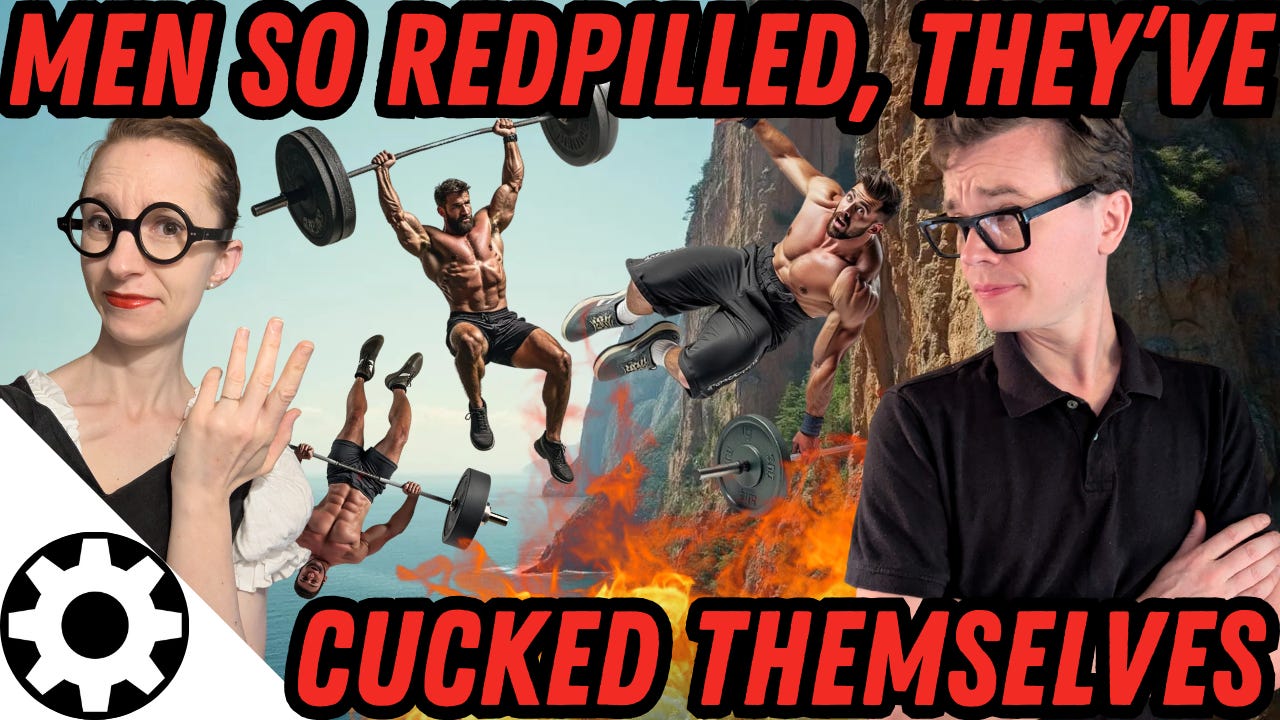The Statistical Divide In How We Perceive Life
Description
In this episode, Malcolm and Simone dive deep into a fascinating NBC study that explores the stark differences in values, priorities, and life choices among Americans based on political affiliation and gender. They discuss why fertility rates are diverging so dramatically between groups, what men and women who voted for Trump or Harris value most in life, the impact of career, financial independence, and family on personal fulfillment, how cultural and generational shifts are shaping the future of America, the role of marriage, debt, and emotional stability in modern society, and surprising insights from pop culture and personal anecdotes. Listen in for a thought-provoking conversation about the future of the country, the challenges of demographic change, and what it means to live a successful life today. Don’t forget to like, comment, and subscribe for more in-depth discussions!
Episode Transcript:
Malcolm Collins: [00:00:00 ] Hello Simone. I am excited to be here with you today.
Today we are going to be discussing. A, a fascinating study that came out from NBC that was looking at what was important to men who voted for Trump versus Kamala Harris, and women who voted for Trump versus Kamala Harris. And what you can see is. People who vote for Kamala Harris are not gonna play a big role in our country’s future.
No. They’re basically deleting themselves from the population because while there had been differences in the past in fertility rates within these groups, it is exploding. So I wanna talk about these preferences. I wanna talk about why they’re different. And to give you an idea of how different they are.
Men who voted for Trump when they were ranking like important for their definition of like success. Literally the top thing. The number one thing was having children.
Simone Collins: Mm-hmm.
Malcolm Collins: Women who voted for Harris. Literally the last thing of importance to them was [00:01:00 ] having children. Which only, yeah, only
Simone Collins: only 6% of
Malcolm Collins: women voted for Harris, which by the way, tied with being married.
Yeah. And not a lot of interest. People retire early, so like financial stability is the other thing they don’t care about. My God. So thoughts on like the, the, that, that number before we go further so that, because a lot of the numbers that I’ve looked at before show like Democrat and Republicans being like 78% to like a hundred percent different in terms of fertility rates, but this would suggest that it’s dramatically higher than that for this next generation.
Simone Collins: Yeah, this doesn’t look good. I, I’m used to seeing much more moderated results from surveys like these, you know, like, oh, they’re, they’re meaningfully different, but this is violently different.
Malcolm Collins: Yeah.
Simone Collins: And I think it’s
Malcolm Collins: because these two groups are becoming more violently different from each other.
Simone Collins: Yeah,
Malcolm Collins: absolutely.
In terms of values.
Simone Collins: Absolutely. It is also sobering to me, however, just how low priority having children is for [00:02:00 ] anyone. That it’s
Malcolm Collins: literally the top priority for men who voted for Trump.
Simone Collins: Yes. Except everyone else, it, it’s not at the top. Yeah. So let’s, let’s talk about
Malcolm Collins: this. Let’s
Simone Collins: talk about women who vote Trump, women who voted for Trump.
It’s right in the middle of the list of, of things presented, although 26% still want to have children. But that’s Malcolm. That’s 26%. That’s a quarter. Yeah.
Malcolm Collins: It’s only 26% of voting Who voted for Trump? And
Simone Collins: then keep in mind, so, so men, oh men who voted for Trump, who really value having kids. Sorry, 34% value.
That’s a third Malcolm. All like, yeah, no. Yeah. They, sure. Of, of the, of the population polled, but this is if only a third of men,
Malcolm Collins: so women who voted for Trump. Like what did women who vote for Trump care about more than having kids, right? Yeah.
Simone Collins: Yeah.
Malcolm Collins: The top thing for them, and this was more important than them, than having kids with, for many who voted for Trump, was financial independence.
Mm-hmm. Which yeah. And
Simone Collins: second is having a fulfilling job career, which is also fulfilling Job. Career is [00:03:00 ] number one for women who voted for Harris. It’s actually, no, it’s also
Malcolm Collins: true for men who voted for Harris. So the funny thing, yeah. About the women who voted for Trump, who, you know, care about money and career, right?
Mm-hmm. Mm-hmm. Is the way that they framed it in terms of what they picked was financial independence. Then for both the men and the women who voted for Harris, it wasn’t that they wanted financial independence, it’s that they wanted enough money to do the things they wanted and to have a fulfilling job or basically enjoy their day job.
Well, I think fertility is, they wanted to have fun and have money, but they didn’t care about independence.
Simone Collins: Fertility is inversely correlated to the extent to which you. Opt in to an atomized capitalist to society where you buy everything you want. So if, if you opt into a community-based society or a family-based society where the vast majority of the goods and services that you value and enjoy and past times involve or, or, or we’ll say endogenous, they come from within your family or community unit, you’re gonna have kids.
But the more you lean into, I [00:04:00 ] will buy every single thing. Individually, I’m going to buy all my food. I’m not gonna make it home. I’m not gonna get it from my family. I’m gonna buy all my entertainment. It’s not gonna come from within my home or from my kids or from my spouse. I’m gonna pay for stuff that makes me entertained.
That will make you less and less fertile. And I think that’s why the focus is on getting this job and career because they’re, they’re opting into the very dynamic that caused the beginning of demographic collapse to begin with, which was industrialization, which was leaving the home. Going out and working and trading money for anything that you want instead of getting it from within your own family unit.
Malcolm Collins: Yeah. I, I think that’s right. To go over like what men who voted for, well, actually let’s look at what women who voted for Hearst, what do they actually value? Because I think that helped us, like mm-hmm. Key into this, and we’ll, we’ll go through the chart and we’ll contrast it with some of the others.
Simone Collins: Yeah.
Malcolm Collins: Number one, and this was true for men who voted for Harris, so they’re actually pretty aligned. The men and women who vote for Harris their top three [00:05:00 ] are the same. No, not
Simone Collins: top three, only top two.
Malcolm Collins: Oh, the, the third one is almost the same. No. Yeah.
Simone Collins: So for women, number one, fulfilling job, career.
Number two, having money to do things you want, that’s the same for men. But then women’s number three priority and God help them ‘cause it’s never gonna happen is having emotional stability. No,
Malcolm Collins: but what’s funnier if you look at the charts, and we often go over this on our show, is that there is no demographic that is more emotionally unstable than progressive women.
Both
Simone Collins: Well, and you know, I’ll point out. That emotional stability is near or at the bottom of the list for men and women who voted for Trump. Yeah, and I think this just goes to show how mental health and specifically poor mental health
Malcolm Collins: is a just, it’s, it’s a. It’s downstream of obsessing about mental health.
Simone Collins: Well, yeah. And, and, and it’s pervasive within progressive culture. And they’re aware of it and they’re like, I wish I had this. And they don’t. And I do think also that there’s a big correlation between having poor mental health and [00:06:00 ] not having a family and religion and strong hard culture that that gives you something more important to worry about than your stupid whims.
‘cause we all have demons. We all have demons. There’s no space for my demon because we have kids, right? Like, but I had, yeah.
Malcolm Collins: It burns the selfishness out of you as one of the other moms say Yes.
Simone Collins: Yeah.
Malcolm Collins: No, I, I completely agree with that, but I think that this is something that we used to intuit as a society much more easily.
Mm. A lot of progressives, they don’t have conservative friends. They don’t watch conservative influencers. No. So they are unaware of the within conservative spaces, the, the significantly higher degree of emotional stability that’s expected. But when we look into the past, even with like recent models of conservatives, like say ron Swanson.
Speaker: I’ve been developing the Swanson Pyramid of greatness for years. It’s a perfectly calibrated recipe for maximum personal achievement. Categories include capitalism, God’s way of determi
























